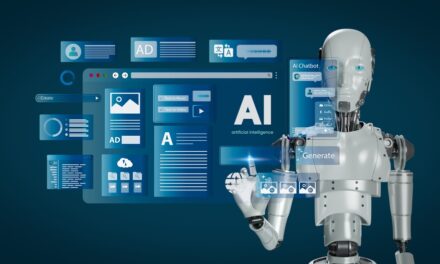Artificial Intelligence (AI) has evolved from a niche academic discipline to a transformative force reshaping industries, economies, and daily life. This comprehensive exploration delves into AI’s history, applications, implications, and future prospects.
Historical Evolution of AI
The concept of AI dates back to the mid-20th century. In 1950, Claude Shannon developed “Theseus,” a robotic mouse capable of navigating a maze, demonstrating early machine learning principles. The term “Artificial Intelligence” was coined in 1956 by John McCarthy during the Dartmouth Conference, marking the formal birth of AI as a field of study. Subsequent decades witnessed the development of AI programming languages like LISP and the creation of systems capable of rudimentary problem-solving and learning.
The 1980s and 1990s experienced periods known as “AI winters,” characterized by reduced funding and interest due to unmet expectations. However, the late 1990s brought renewed vigor with IBM’s Deep Blue defeating chess champion Garry Kasparov in 1997, showcasing AI’s potential in complex problem-solving.
The 21st century has seen exponential growth in AI capabilities, driven by advancements in computational power, data availability, and algorithmic development. Modern AI systems, such as large language models and generative adversarial networks, exhibit capabilities like natural language understanding and image generation, blurring the lines between human and machine intelligence.
Applications of AI Across Industries
AI’s versatility has led to its integration into various sectors, enhancing efficiency, decision-making, and user experience.
- Healthcare: AI aids in diagnostics, personalized treatment plans, and predictive analytics. Machine learning algorithms analyze medical images for early disease detection, while AI-driven predictive models forecast patient outcomes, enabling proactive interventions.
- Finance: In the financial sector, AI algorithms detect fraudulent activities by analyzing transaction patterns and flagging anomalies. Additionally, AI-driven chatbots provide customer service, and robo-advisors offer personalized investment advice based on individual financial goals and risk tolerance.
- Transportation: AI powers autonomous vehicles, optimizing route planning and enhancing safety through real-time data analysis. Ride-sharing platforms utilize AI to match drivers with passengers efficiently, reducing wait times and improving user satisfaction.
- Retail: E-commerce platforms leverage AI for personalized product recommendations, inventory management, and dynamic pricing strategies, enhancing customer engagement and operational efficiency.
- Education: AI-driven platforms offer personalized learning experiences, adapting content to individual student needs and pacing, thereby improving educational outcomes. Virtual tutors and AI-assisted grading systems further support educators and learners.
- Entertainment: Streaming services use AI to analyze user preferences, curating personalized content recommendations. In gaming, AI enhances non-player character behavior, creating more immersive and challenging experiences for players.
Recent Advancements in AI
The past few years have witnessed significant AI breakthroughs:
- Generative AI: Models like OpenAI’s GPT series generate human-like text, enabling applications in content creation, translation, and more. These models have been employed in drafting articles, coding, and even creating poetry, demonstrating AI’s creative potential.
- Quantum Computing Integration: Companies like Google have achieved milestones in quantum computing, potentially accelerating AI processing capabilities and solving complex problems more efficiently. Quantum algorithms could revolutionize optimization tasks, cryptography, and complex simulations.
- AI in Drug Discovery: AI models have expedited the identification of potential drug candidates, significantly reducing the time and cost associated with bringing new medications to market. For instance, AI has been instrumental in identifying compounds for treating diseases like liver cancer.
Implications of AI Integration
While AI offers numerous benefits, its integration presents challenges and considerations:
- Employment Dynamics: AI is poised to automate certain job functions, potentially displacing workers in roles susceptible to automation. However, it also creates new job categories, emphasizing the need for workforce reskilling and adaptation. The AI job market is expected to grow significantly, with demand for roles such as machine-learning specialists and AI ethicists.
- Ethical Considerations: The deployment of AI systems raises ethical questions, including concerns about bias in decision-making algorithms, privacy issues related to data collection, and the potential for AI-generated misinformation. Ensuring transparency, fairness, and accountability in AI systems is paramount.
- Economic Impact: AI contributes to economic growth by enhancing productivity and creating new markets. However, it may also exacerbate economic disparities if access to AI technologies is uneven, highlighting the importance of inclusive AI policies.
- Legal and Regulatory Frameworks: The rapid advancement of AI technologies outpaces existing legal and regulatory structures, necessitating the development of new policies to address issues such as liability in autonomous systems and intellectual property rights for AI-generated content.
Future Prospects of AI
The trajectory of AI suggests several future developments:
Advancements in General AI: While current AI systems excel in specific tasks, the development of Artificial General Intelligence (
AGI)—an AI capable of performing any intellectual task a human can do—remains a distant yet highly anticipated goal. Researchers are striving to bridge this gap by enhancing machine learning models with broader reasoning, adaptability, and human-like problem-solving capabilities. The realization of AGI could revolutionize fields ranging from science and technology to education and creativity, but it also raises profound ethical and existential concerns.
AI and Sustainability:
AI is poised to play a pivotal role in addressing global sustainability challenges. Machine learning models are being utilized to optimize energy consumption, predict climate patterns, and enhance resource management in industries like agriculture and manufacturing. For instance, AI-driven precision farming techniques help minimize water usage and pesticide application, contributing to more sustainable food production systems.
AI in Space Exploration:
AI is increasingly integral to space exploration efforts, aiding in navigation, anomaly detection, and data analysis. NASA employs AI to process massive datasets from telescopes and rovers, uncovering insights about the universe. Future AI-driven missions could include autonomous spacecraft capable of making real-time decisions during interplanetary travel, further expanding humanity’s reach into space.
The Role of AI in Arts and Culture:
AI is reshaping artistic expression and cultural production. Generative AI tools are creating paintings, music, and literature, blurring the boundaries between human and machine creativity. While critics debate the authenticity and emotional depth of AI-generated art, others view it as a collaborative tool that augments human creativity. In cultural preservation, AI assists in digitizing and restoring ancient artifacts and texts, ensuring their longevity for future generations.
Emerging Trends in AI:
- Edge AI:
Moving AI computations closer to the source of data, Edge AI reduces latency and improves privacy. This technology is crucial for applications like autonomous vehicles and smart home devices, where real-time decision-making is essential. - Explainable AI (XAI):
As AI systems become more complex, understanding their decision-making processes is critical for trust and accountability. XAI focuses on making AI models more transparent and interpretable, particularly in high-stakes domains like healthcare and criminal justice. - AI-Augmented Workforce:
Rather than replacing human workers, AI is increasingly augmenting their capabilities. Collaborative robots (cobots) work alongside humans in manufacturing, while AI tools assist professionals in fields like law and journalism, enhancing productivity and precision. - Federated Learning:
This decentralized approach to machine learning allows models to be trained across multiple devices without centralizing data, preserving privacy while enabling collective intelligence. It holds promise for sensitive domains like healthcare and finance.
Challenges in the Road Ahead:
- Bias and Fairness:
AI systems often reflect biases present in their training data, leading to discriminatory outcomes. Efforts to address these issues involve diversifying datasets, implementing fairness-aware algorithms, and fostering inclusive design practices. - Data Privacy and Security:
The reliance on vast amounts of data raises concerns about privacy and security. Ensuring robust data protection mechanisms and adhering to ethical data usage standards are critical for maintaining public trust. - Energy Consumption:
Training advanced AI models requires significant computational resources, leading to high energy consumption and environmental impact. Innovations in energy-efficient AI algorithms and hardware are essential to mitigate these effects. - Regulation and Governance:
As AI technologies advance, governments and organizations must establish regulatory frameworks that balance innovation with safety and ethical considerations. International cooperation will be crucial in addressing cross-border AI challenges.
The Human-AI Synergy
AI’s future lies in its collaboration with humanity. By integrating AI into decision-making processes, we can amplify human ingenuity while retaining ethical oversight. For example, doctors using AI for diagnostics combine the machine’s precision with their clinical expertise, ensuring better patient outcomes.
Conclusion
Artificial Intelligence is not just a technological milestone; it is a paradigm shift influencing every facet of human existence. From revolutionizing industries to addressing global challenges, AI’s potential is boundless. However, its integration must be guided by ethical principles, robust governance, and a commitment to inclusivity. As we navigate this transformative era, fostering a balanced partnership between humans and AI will be key to unlocking a future that benefits all.
Through innovation, responsibility, and collaboration, AI promises to lead humanity into a new age of discovery and progress.










